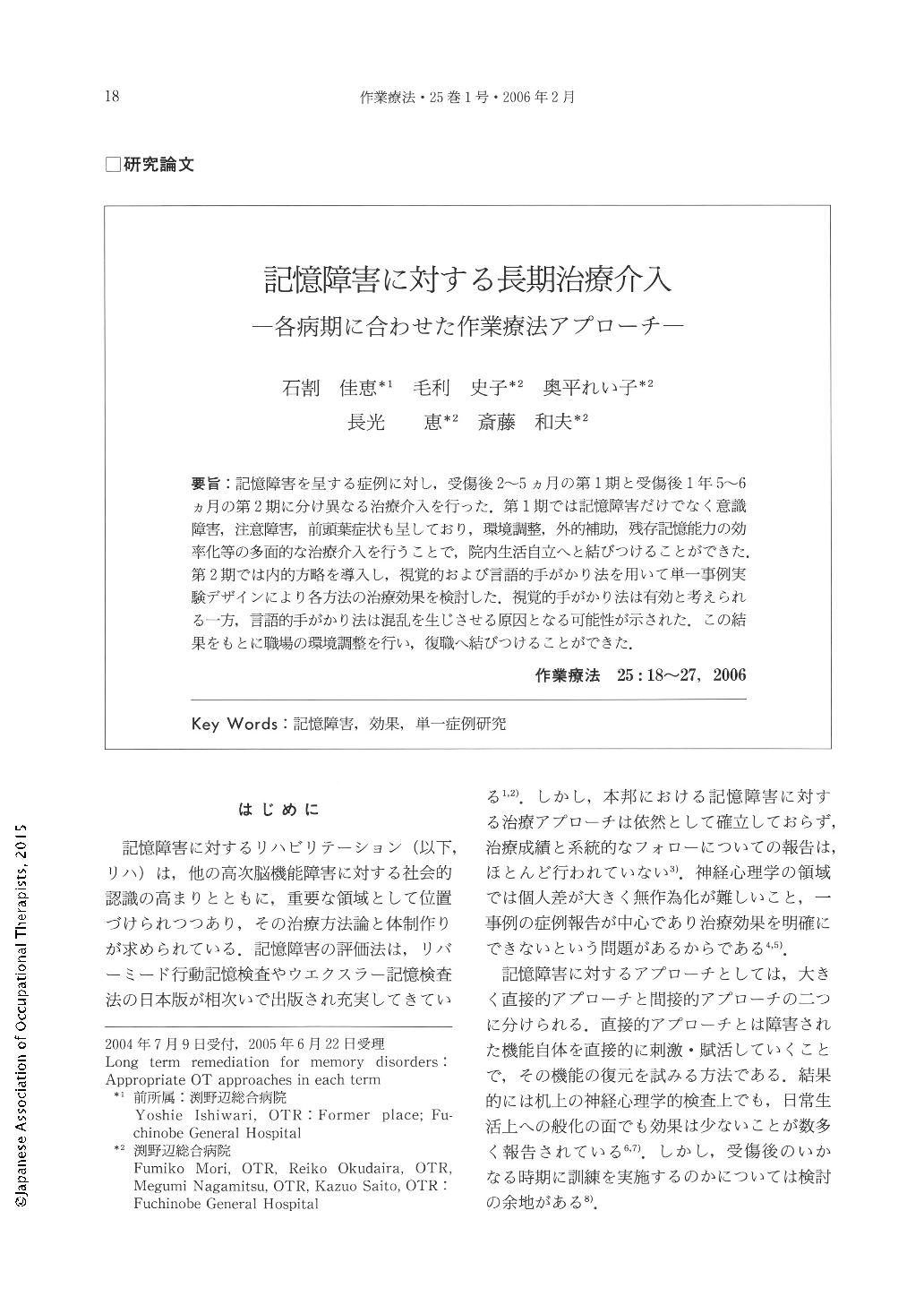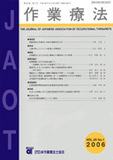Japanese
English
- 販売していません
- Abstract 文献概要
- 1ページ目 Look Inside
- 参考文献 Reference
- サイト内被引用 Cited by
要旨:記憶障害を呈する症例に対し,受傷後2〜5ヵ月の第1期と受傷後1年5〜6ヵ月の第2期に分け異なる治療介入を行った.第1期では記憶障害だけでなく意識障害,注意障害,前頭葉症状も呈しており,環境調整,外的補助,残存記憶能力の効率化等の多面的な治療介入を行うことで,院内生活自立へと結びつけることができた.第2期では内的方略を導入し,視覚的および言語的手がかり法を用いて単一事例実験デザインにより各方法の治療効果を検討した.視覚的手がかり法は有効と考えられる一方,言語的手がかり法は混乱を生じさせる原因となる可能性が示された.この結果をもとに職場の環境調整を行い,復職へ結びつけることができた.
This paper presents a case study of OT approaches for a male with memory disorder. We have experienced treating him for a long period. We divided his remediation into two terms and gave different approaches to each of them.
The first term is from the second month to the fifth month after the injury. He suffered from not only memory disorder but also conscious disorder, attention disorder, and frontal lobe disorder. We arranged environmental adaptations, external memory aids, and other efficient ways to improve his attention disorder and frontal lobe disorder. After these various approaches, ADL ability was improved and he spent daily life almost independently in our hospital.
The second term is from one year and fifth months to one year and sixth months after the injury. His disorders, except for memory disorder, were mostly improved. We concentrated our efforts on remediation of his memory disorder before he returned to work. His visual memory ability was better than his verbal one. So we employed single-case experimental design and alternated between visual and verbal approaches to help him memorize words. As a result, we learned that the visual approach had the potential to improve his memory disorder while the verbal approach would cause him confusion. Later, we met with his supervisor at work and discussed his condition. The supervisor later assigned him another position that suited him.
The conclusion of this paper is that it is important for memory disorder cases to receive appropriate OT approaches at the appropriate times. Moreover, we need to evaluate the effectiveness of different approaches. Based on that, the therapists should adopt the best approaches to remedy each of the cases.

Copyright © 2006, Japanese Association of Occupational Therapists. All rights reserved.


